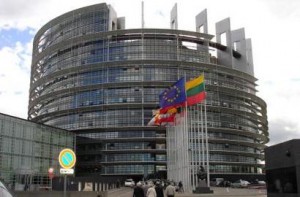 This article was also published in the EU Observer in November 2009
This article was also published in the EU Observer in November 2009
Ever since Romania prohibited international adoptions in 2001 it has been pressurised by the leaders of France, Italy, Israel, Spain and the US to lift the ban. Behind these politicians are private adoption agencies, adoptive parents and others interested in getting children for whatever reason.
When Hillary Clinton met the Romanian Foreign Minister earlier this year she handed him a letter which said “We urge you to reform the current law in Romania…including a reevaluation of your decision to remove international adoption as an important permanency option”.
Romania should continue to stand firm in the face of this intense lobby for international adoption, a lobby which talks about tens of thousands of Romanian orphans languishing in grim institutions. But the EU-funded reform of Romania’s child welfare system resulted in the closure of almost all the notorious children’s homes, introduced foster care and a range of family-based alternatives. The EU also insisted that Romania stop international adoptions as it had established a free market in children.
But now the EU and Council of Europe (COE) are joining the lobby to convince Romania to lift its ban on international adoptions. The European Commission’s justice unit and the COE are organising a conference in Strasbourg at the end of November with some of the most active members of the international adoptions lobby. Conference organiser Patrizia de Luca admitted that one of the aims of the conference is “to convince Romania that inter-country adoptions can be authorized in a certain way”.
The conference “Challenges in Adoption Procedures in Europe” was initiated by French MEP Jean Marie Cavada and investment banker Francois de Combret. These lobbyists talk of the “free movement of children” within the EU, as if children are like capital, goods and services. The aim of the conference is to develop a “European Adoption Policy” so that parents from one member state can adopt from any other member state.
Considering that the event will be packed with pro-adoption lobbyists, it is likely the conference will recommend the commission develops a “European Adoption Policy”. This would mean that families in Italy, France and Spain, where there are huge waiting lists of adoptive parents, can access a fresh supply of children from Romania.
But the truth is that there are very few orphaned children in Romania, where children in care are placed in the extended family, foster or family type homes. In addition, there is a waiting list of Romanian families who want to adopt. The Romanian adoption system developed in 1997, in compliance with the Hague Adoption Convention, showed that the financial incentives involved in international adoptions (up to 30,000 euro a child) corrupted health, welfare and legal services and poor single mothers were routinely persuaded to “abandon” their children in maternity hospitals. In other words, the demand for children creates the supply and corrupts local social services.
Roelie Post is a commission official now seconded to the NGO Against Child Trafficking. For many years she worked on the Romanian reform and documented her experiences in a book called ‘Romania, For Export Only – the untold story of the Romanian ‘orphans’. She says, “the trade in adoptions are mediated by private adoption agencies in exchange for large sums of money. The EU demanded Romanian become like other EU member states by taking care of its own children, but now they seem to want all EU Member States to become like Romania was before 2001 – when children were made available for the international adoption market. The EU now supports the same lobby groups that they withstood for many years.”
Personally I think the adoption problem is not among the first 20 issues on Emil Boc’s agenda.
And also I don’t understand why international adoptions are bad. If 2000 children would leave the country each year that would mean 2000 children getting a chance to live decently instead of pupulating the Bucharest sewage system.
If someone gets some money for mediating these adoptions… fine, circulation of money makes the world go round. Maybe the Romanian state should also ask for some fees for allowing this to happen, it’s not like money throw us out of our homes in this country you know…
Definetly international adoptions should be allowed, the same way states allow foreign women to get birth to children on their territory and offer them citizenship after that.
people are also entitled to free movement in the EU besides services and goods. I find it hard to understand why you believe it would be better for children to stay in romanian foster care instead of in the care of a permanent home abroad. if a certain child is on an international adoption list, it’s generally because no romanian family will adopt them. so they end up in foster care. another institution which is based on individual gain of the (often very poor) foster parents. foster care is still a temporary measure and children in foster care are still orphans.
keeping those children from a long term loving home just because international adoption may encourage corruption seems like a simplistic idea to me. especially since european institutions are now supposed to be fully cooperating, it seems like the perfect time for some good post adoption procedures to be put into place to ensure that the child is perfectly safe in his/her new home, wherever in this great Europe that may be.